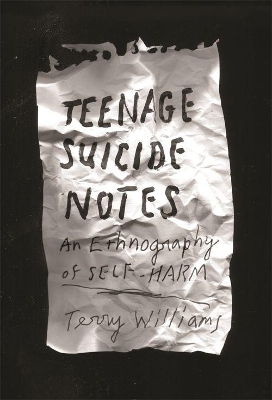The Cosmopolitan Life
2 total works
The “after-hours club” is a fixture of the African American ghetto. It is a semisecret, unlicensed “spot” where “regulars” and “tourists” mingle with “hustlers” to buy and use drugs long after regular bars are closed and the party has ended for the “squares.” After-hours clubs are found in most cities, but for people outside of their particular milieu, they are formidably difficult to identify and even more difficult to access.
The sociologist Terry Williams returns to the cocaine culture of Harlem in the 1980s and ’90s with an ethnographic account of a club he calls Le Boogie Woogie. He explores the life of a cast of characters that includes regulars and bar workers, dealers and hustlers, following social interaction around the club’s active bar, with its colorful staff and owner and the “sniffers” who patronize it. In so doing, Williams delves into the world of after-hours clubs, exploring their longstanding function in the African American community as neighborhood institutions and places of autonomy for people whom mainstream society grants few spaces of freedom. He contrasts Le Boogie Woogie, which he visited in the 1990s, with a Lower East Side club, dubbed Murphy’s Bar, twenty years later to show how “cool” remains essential to those outside the margins of society even as what it means to be “cool” changes. Le Boogie Woogie is an exceptional ethnographic portrait of an underground culture and its place within a changing city.
The sociologist Terry Williams returns to the cocaine culture of Harlem in the 1980s and ’90s with an ethnographic account of a club he calls Le Boogie Woogie. He explores the life of a cast of characters that includes regulars and bar workers, dealers and hustlers, following social interaction around the club’s active bar, with its colorful staff and owner and the “sniffers” who patronize it. In so doing, Williams delves into the world of after-hours clubs, exploring their longstanding function in the African American community as neighborhood institutions and places of autonomy for people whom mainstream society grants few spaces of freedom. He contrasts Le Boogie Woogie, which he visited in the 1990s, with a Lower East Side club, dubbed Murphy’s Bar, twenty years later to show how “cool” remains essential to those outside the margins of society even as what it means to be “cool” changes. Le Boogie Woogie is an exceptional ethnographic portrait of an underground culture and its place within a changing city.
"Picturing myself dying in a way I choose myself seems so comforting, healing and heroic. I'd look at my wrists, watch the blood seeping, and be a spectator in my last act of self-determination. By having lost all my self-respect it seems like the last pride I own, determining the time I die."-Kyra V., seventeen Reading the confessions of a teenager contemplating suicide is uncomfortable, but we must do so to understand why self-harm has become epidemic, especially in the United States. What drives teenagers to self-harm? What makes death so attractive, so liberating, and so inevitable for so many? In Teenage Suicide Notes, sociologist Terry Williams pores over the writings of a diverse group of troubled youths to better grasp the motivations behind teenage suicide and to humanize those at risk of taking their own lives. Williams evaluates young people in rural and urban contexts and across lines of race, class, gender, and sexual orientation. His approach, which combines sensitive portrayals with sociological analysis, adds a clarifying dimension to the fickle and often frustrating behavior of adolescents.
Williams reads between the lines of his subjects' seemingly straightforward reflections on alienation, agency, euphoria, and loss, and investigates how this cocktail of emotions can lead to suicide-or not. Rather than treating these notes as exceptional examples of self-expression, Williams situates them at the center of teenage life, linking them to abuse, violence, depression, anxiety, religion, peer pressure, sexual identity, and family dynamics. He captures the currents that turn self-destruction into an act of self-determination and proposes more effective solutions to resolving the suicide crisis.
Williams reads between the lines of his subjects' seemingly straightforward reflections on alienation, agency, euphoria, and loss, and investigates how this cocktail of emotions can lead to suicide-or not. Rather than treating these notes as exceptional examples of self-expression, Williams situates them at the center of teenage life, linking them to abuse, violence, depression, anxiety, religion, peer pressure, sexual identity, and family dynamics. He captures the currents that turn self-destruction into an act of self-determination and proposes more effective solutions to resolving the suicide crisis.

